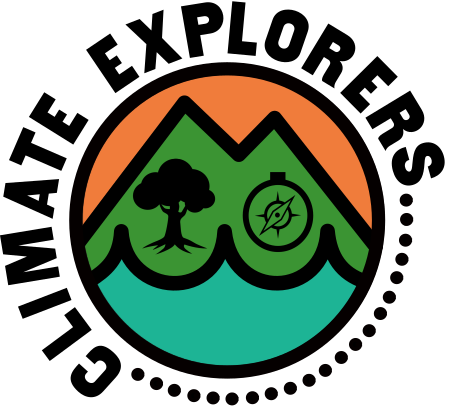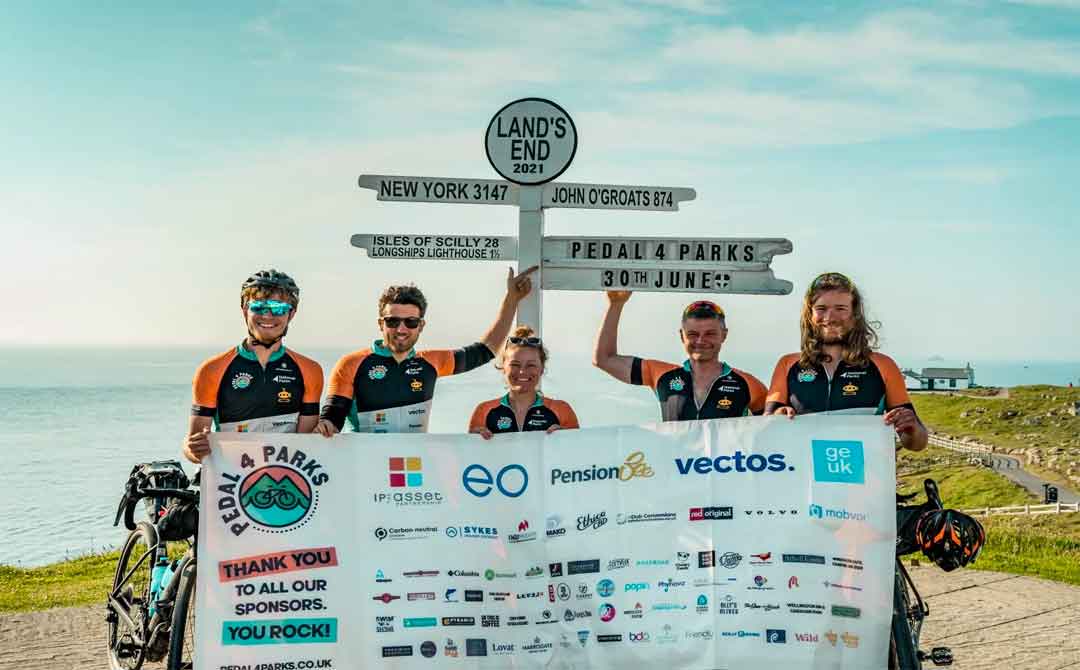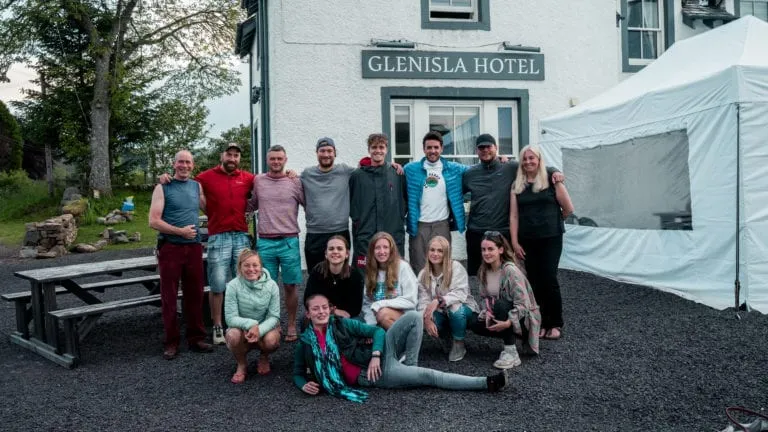
Moving Up: Our Journey to the Starting Line
The time has finally come for the Pedal 4 Parks expedition to begin, but before our eco-cyclists take to the road we first need to make our way up to the starting line in the Orkney Islands. We are keen not to waste any time on our journey up the country and starting June 14th we will be interviewing numerous environmental advocates to get their take on what can be done to curb the UK’s environmental crisis. These crucial interviews are what will give substance to our documentary and allow us to share what we learn with you! We will be blogging along the way to give you some behind the scenes information and photos as we complete our adventure and create our documentary.
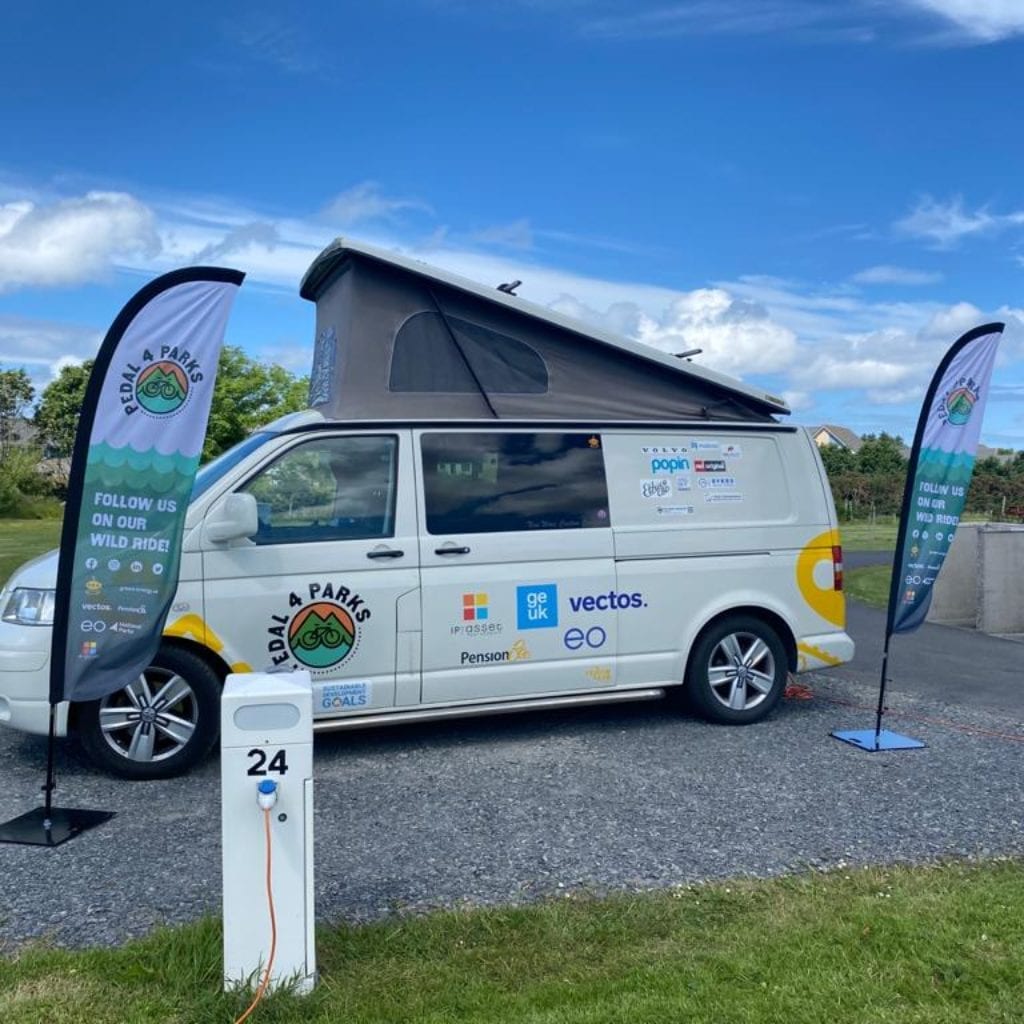
Given the urgency of our cause, we have a jammed packed interview schedule starting our 4 day journey up to the Orkney Islands with five exciting interviews. Our team was up and out early to join together in London and meet the first few interviewees of the day. The day didn’t start small as we were met by two influential spokesmen for COP26, the 26th United Nations Climate Change Conference. David Saddington is head of the International Nature Campaign for COP26 and as nature is this year’s central theme he is playing a big part in the conference. It is on his agenda to reconnect the public with nature and try to increase business focus on environmental issues and their impact on nature.
COP26 looks to bring groups together promoting environmental awareness, a theme that also came through in our interview with Liam Upson, the head of the International Adaptation and Resilience at COP26 and member of the Department for Environment, Food and Rural Affairs (DEFRA). His primary aim is to work alongside local communities to help build the foundations to start positive climate adaptation. We can’t reverse the environmental climate we are in, but we can use the tools we already have to educate, support and involve the communities that cannot adapt to new initiatives given the financial privileges often attached to them.
Later that morning we also spoke to Sinead Conneely, structural engineer and co-founder of Simple Works. Her work and company searches for and uses low-carbon materials in their engineering, aiming to move attention away from the steel market. Sinead wants to change how engineering students are taught and has set up outreach programs in an effort to change the default.
Wrapped up by ten o’clock, the team’s next interview found them at the Mind In Mid Herts foundation building in St. Albans. Our cause already has a connection with the mental health charity with Isaac having been a trustee for several years. Much of our conversation with Callum focused on the impact of the pandemic and how green spaces prescribed health care for many of us. We cannot stress enough that just a ten minute break in the outdoors can increase your serotonin and endorphins to directly improve your mental health. Getting out allows us to connect with nature and with people, getting us back to communicating face-to-face after a year of isolation.
Now it was time to make our way into the first national park of the trip, the Peak District! Although this isn’t counted in the six we will be visiting during the expedition, our team was still thrilled to be in the wonderful green space… we just can’t get enough of it! Here we met up with the owner of PeakUK, Pete Astles, who runs the kayaking equipment business under his values for conservation and protection of our natural environments. Out on the canal, in one of our more dynamic film locations of the day, Pete spoke about his recent efforts to encourage young people to get involved in outdoor sport, enhancing their relationship with nature and hopefully their appreciation for it. He is also an active spokesperson against littering, putting his focus on the companies that make the products that are most often found trashed in our green spaces. To end the day we joined Pete on a litter pick along the canal, filling a bag of unnecessary and environmentally damaging waste, just check out the photo below!
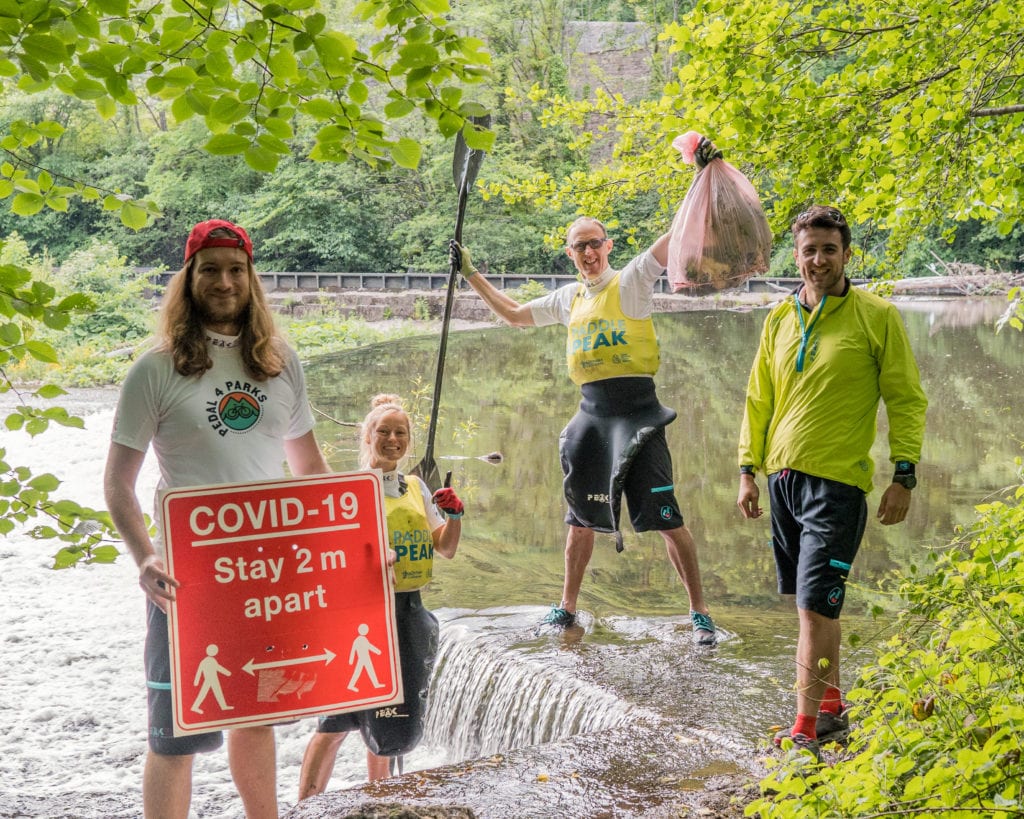
Photo taken by Amber
After a restful night at the Upperhurst Farm Campsite, the team set off for Greater Manchester, where they visited the Saddleworth Community Hydro Project. The project, kickstarted by local community member Dr Andrew Taylor, is a local initiative that uses the previously built paper mill dam infrastructure to generate enough electricity to power around 70 homes. This project is the first high head system in England to use an existing dam, meaning that the damage caused by the initial implementing of the structure isn’t going to be wasted.
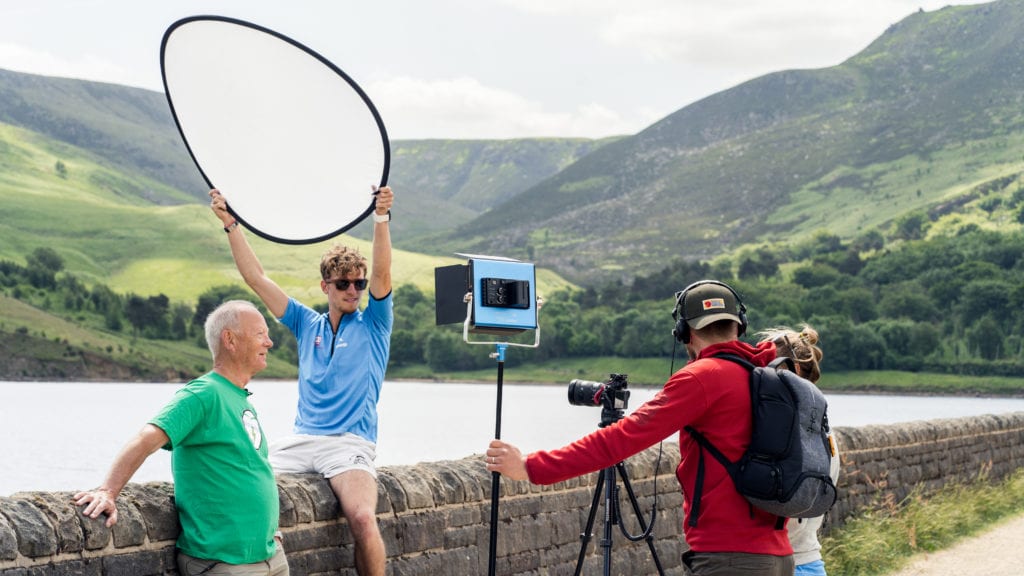
Our gold sponsor, GEUK, was chosen by the Saddleworth Community Hydro Project to be the distributor of their electricity, as they are connected to them by their environmental values and it’s great to know that this small project has a national impact through GEUK!
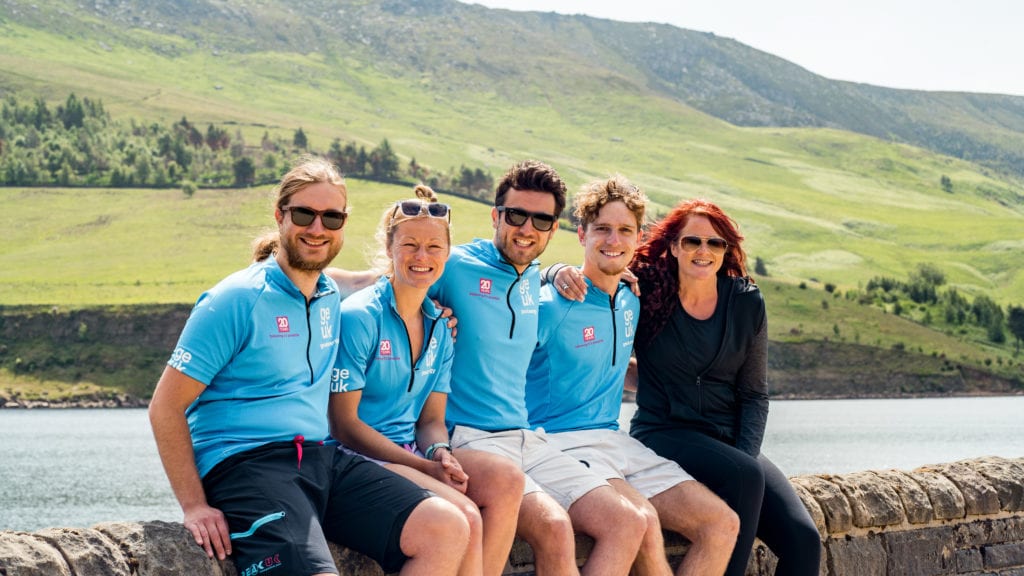
Sticking within the Oldham area, the team then visited the Northern Roots project, soon to be the UK’s largest urban farm and eco-park. Kimo Morrison is the Communications and Engagement Lead at the project and spoke to us about their central three pillars: Environment, Economy and People. The site offers over 40 species of biodiversity and 5 different environmental ecosystems. In supplying these environments, the project looks to connect communities in deprived areas to improve wellbeing and the environments around them. They are doing this through outreach programs and by working with local small businesses who set up small stalls promoting their business and the site’s tourism.
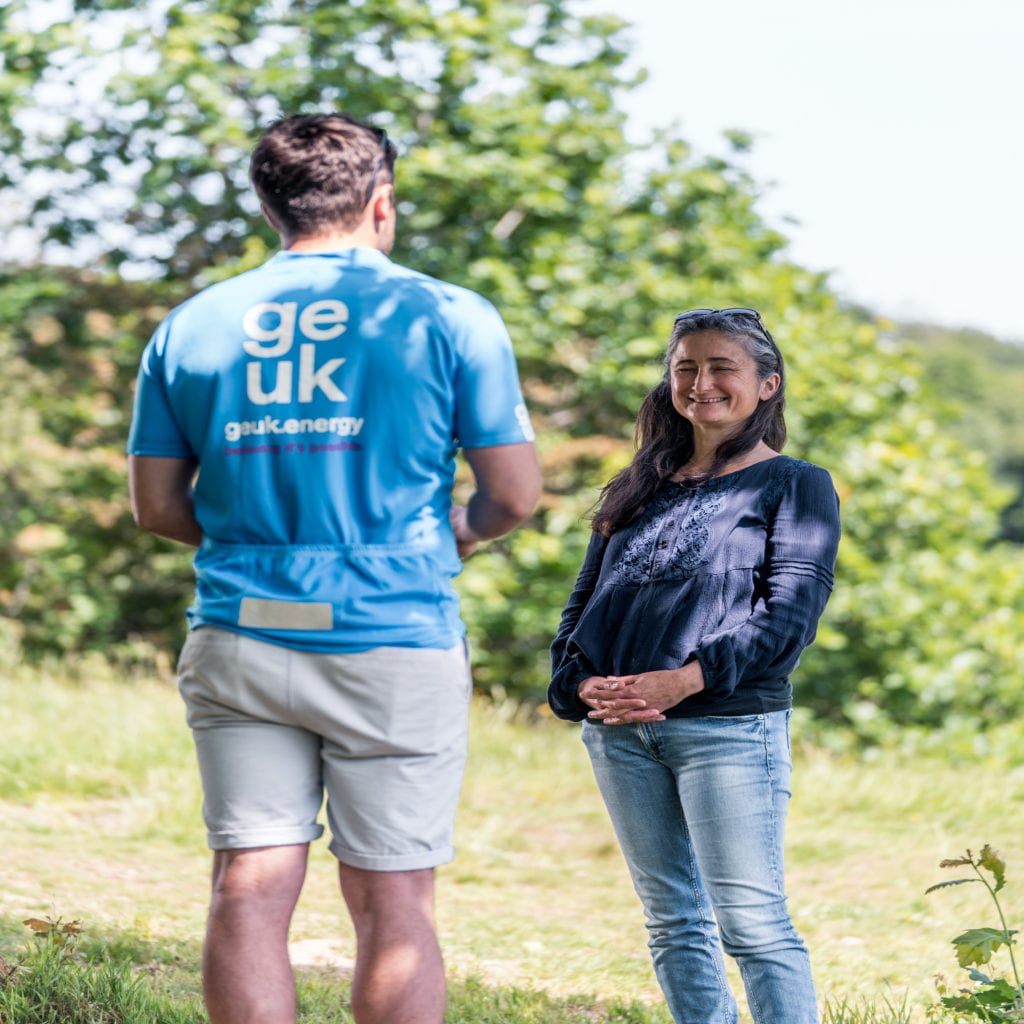
Wednesday saw the team take their longest journey yet, travelling up into the Scottish highlands. It is safe to say the journey was immensely beautiful passing various Lochs, Valleys and the occasional Highland Cow! We were lucky enough to be hosted by the wonderful Glenisla Hotel, a beautiful and welcoming hotel positioned in the stunning Scottish countryside. From here we were able to visit two amazing projects in the local area, both set on giving back to the environments and species within them.
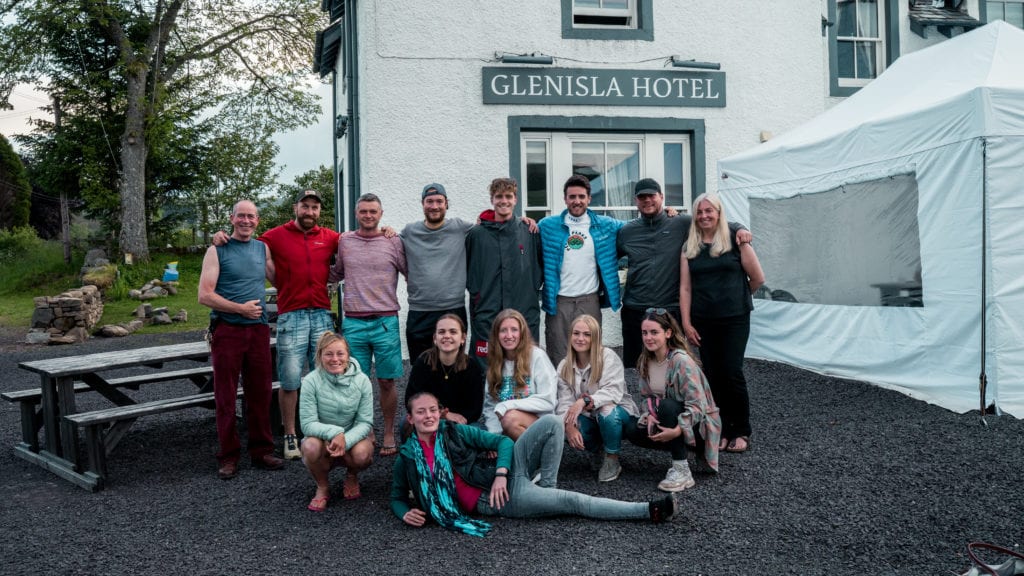
The first stop was the Bamff Beaver retreat, a family owned rewilding project and stay location. The three beavers were brought to Bamff in 2002 and there are now three different families of the dam building animal in the area. What is great about this is that the beaver dams act as a natural flood defence and have transformed the landscape to increase biodiversity. Although a small action, this project showcases that when we put something back to the environment it has powerful positive repercussions.
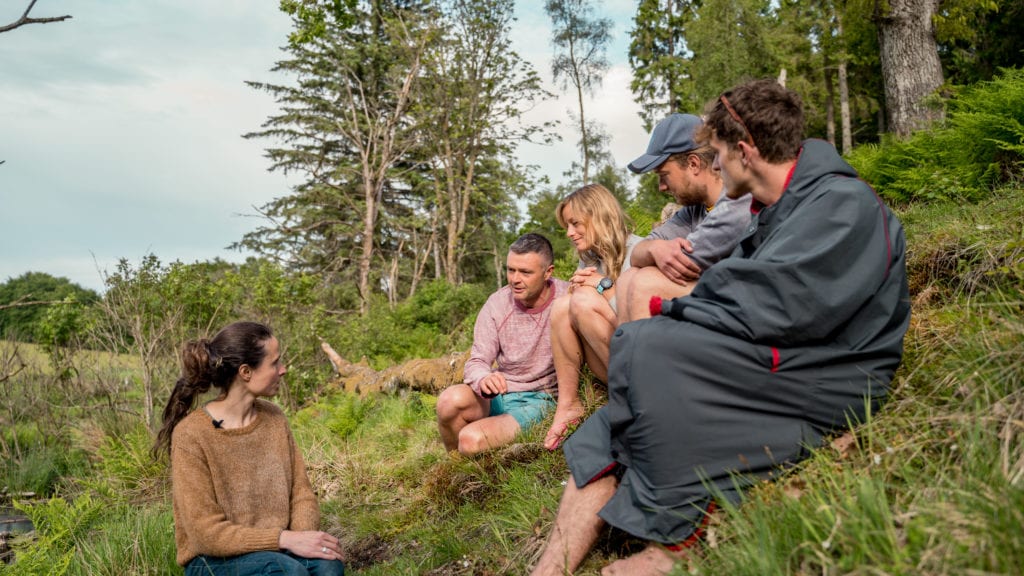
Directly after we made our way to the Cateran Eco-museum in Alyth, a new style of museum for the UK but one that has already swept across Europe. The museum is a SSSI location covering approximately 1000 sq km. The concept brings together natural and cultural heritage, offering a rich and free educational experience for visitors. By immersing ourselves within this geographical and historical landscape, we were able to physically engage with the stories and pasts. The museum is developing a series of walking and cycling roots to bring local engagement and encourage the use of the landscape alongside its beauty.
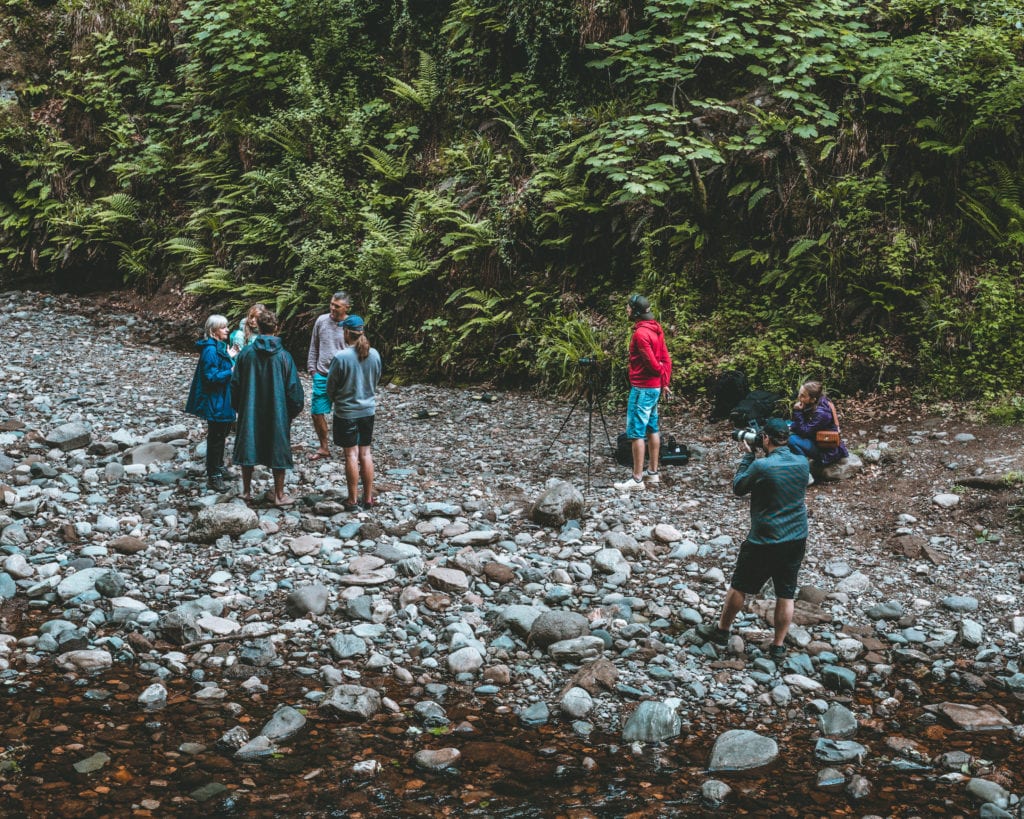
Thursday was our final day before the expedition, and was jam packed with travel, interviews and more stunning views. Setting off from Glenisla the team visited the Findhorn Eco-Village where they met with Tom Raymont from Arboreal Architecture, an ecological architectural practice. Their aim is to enhance sustainability in the materials they use and lessen the encroachment of buildings on nature. This means that beyond locating low-carbon materials, the architects work with the natural landscape to integrate with nature and build around the beauty already there. Designing with the natural landscapes in mind offers an enhanced interaction between the environment and the eco-village, so the natural benefits of the surrounding biodiversity can be used by those who live there.
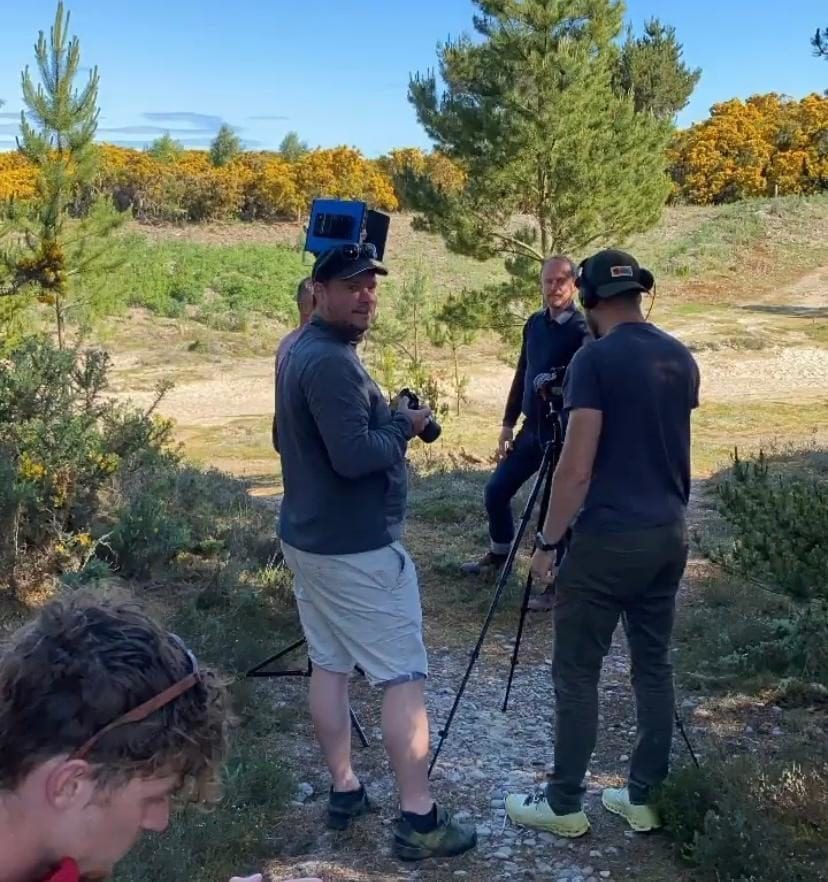
The next step was to jump aboard the ferry and make our way to the Orkney Islands. Finally we were approaching the starting line and after a few days of travelling our eco-warriors were thrilled at the thought of jumping back on their bikes! At St Margaret’s Hope Harbour we were met by Catherine who represented Pentland Ferries and the awesome renewable work the transport company is doing in Orkney. The catamaran boats have been designed using hybrid technology that allows them to be charged and powered by wind energy. Both the boats and the company buildings are powered by a local wind farm and the Pentland Ferries are keen to show that it is possible to work successfully with renewable energy in major transport industries across the island and the UK.
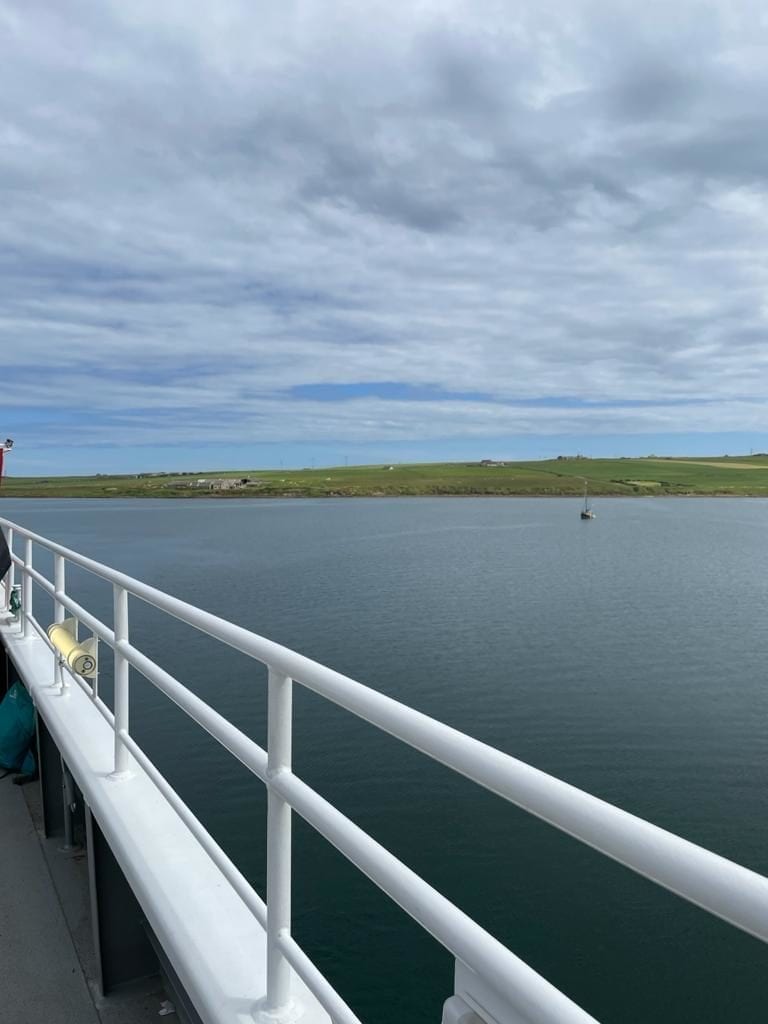
As the support crew set up camp in Kirkwall in the Orkney Caravan Park at Pickaquoy, the cycling team travelled to the coast to speak to some more of Orkney’s environmental advocates. The first of these was Andrew Scott, CEO of Orbital Marine Power, who are focused on the development of a low-cost, predictable, scalable floating tidal technology. Andrew stressed that his company wants to be a part of the solution, but is realistic in the knowledge that their work will not be the sole solution to the environmental crisis. The placement of these tidal projects in the harsh Orkney tides is set to power the local island communities, providing a huge leap forward in tidal technology for the UK. In our renewable blog we spoke about the usefulness of locally designed solutions and this Orkney project is a great example of how local environments can help renewable innovation.
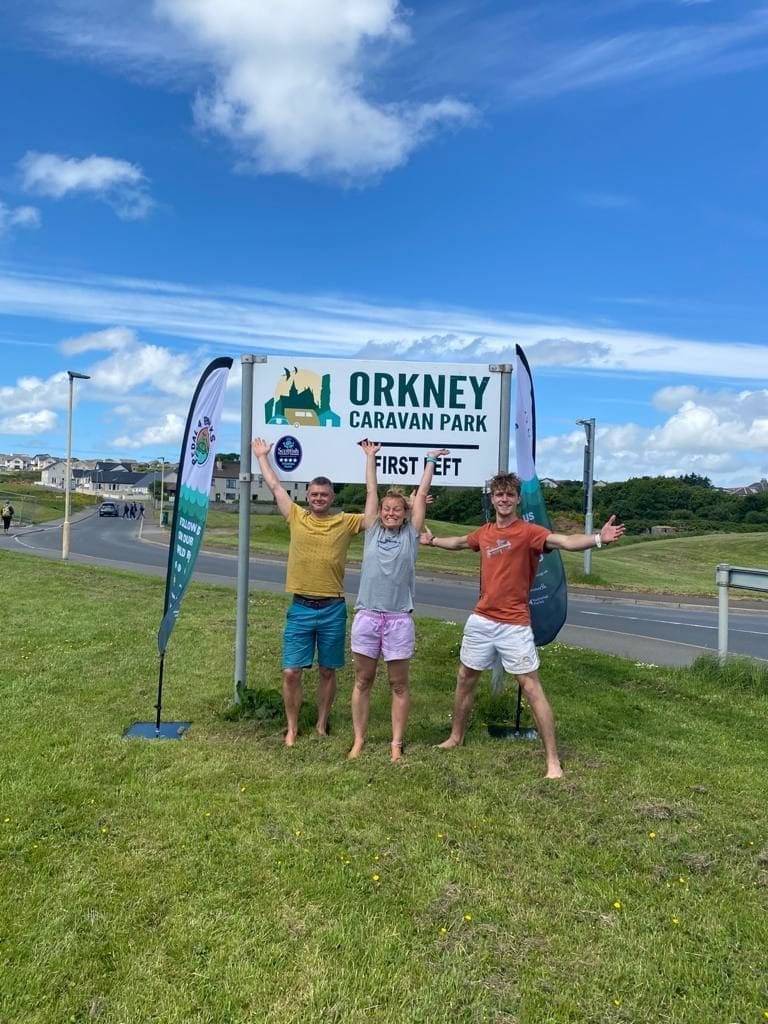
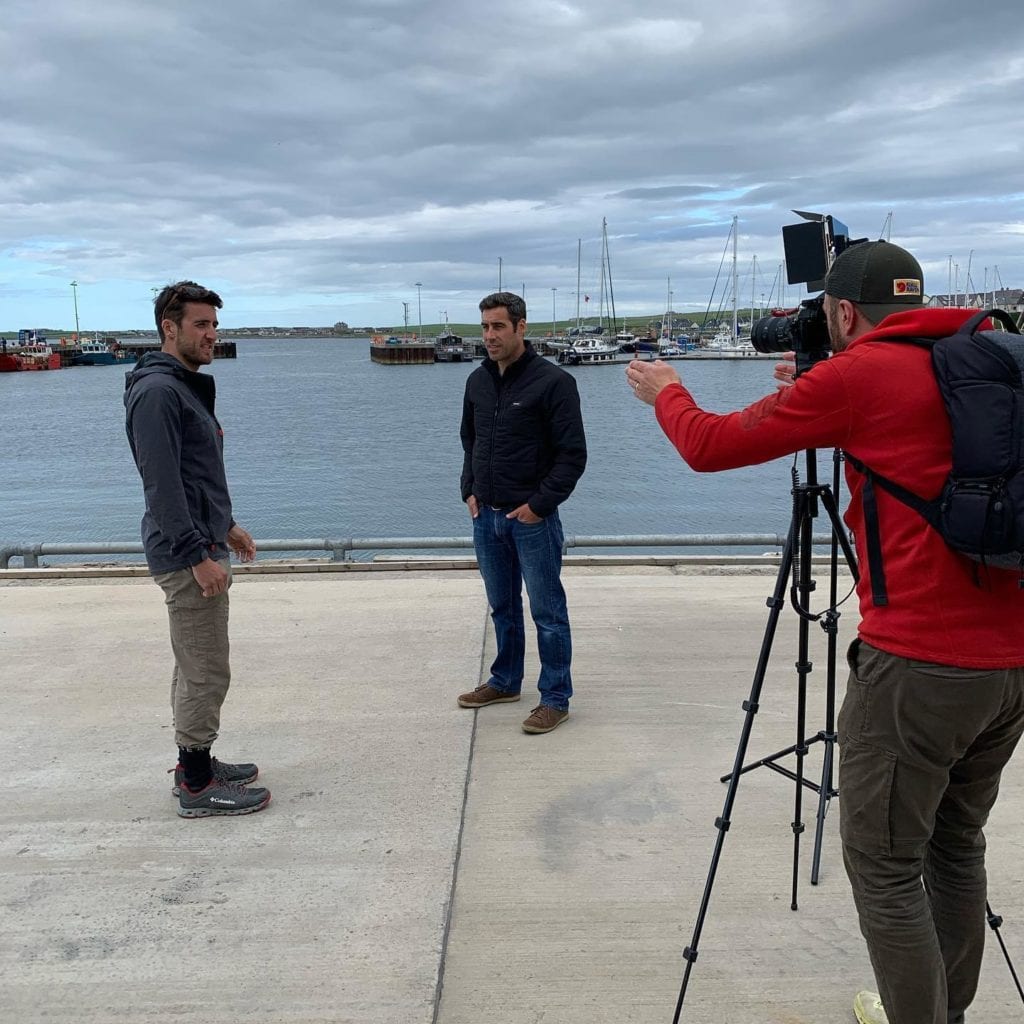
On the same evening, the team was also joined by James Furgeson from European Marine Energy Centre (EMEC). The EMEC is best known for their progress in ocean energy development, but our interview focused on their more recent work in setting up a hydrogen production plant in Orkney. This futuristic initiative uses tidal and wind energy to generate green hydrogen. The process works through electrolysis separating the hydrogen into its gas form to be then used in a variety of fuel, power and heat applications. Their mission started with ocean energy, but as the company has grown they are keen to use their infrastructure to help the world “decarbonise” in other areas and promote the scaling up of renewable energy technologies.
Once back at the campsite it was time to prepare for the next day. The team needed to check their bikes, pack their essentials and collect their thoughts ready to set off from Birsay, the northernmost point on the main island, the next day. Close to Kirkwall, our camping location allowed us to drop into the town to explore some of the island before getting in the expedition mindset. And, of course, enjoy a stunning view of the sunset over the countryside before getting the much needed rest ready for their big day ahead.
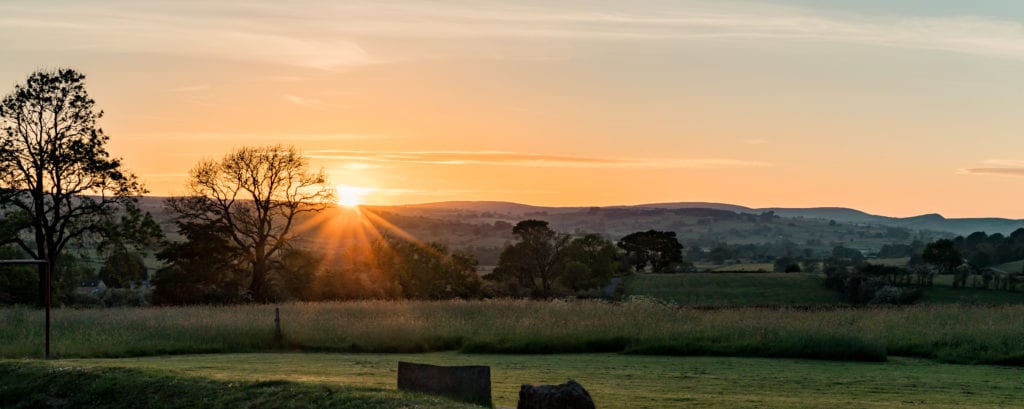
As the team prepares to set off, remember to follow their location on our socials and if you’re feeling extra active maybe you can join us for the ride!
What you can do to help…
Follow Us! Head over to @pedal4parks on Twitter, Instagram, Facebook and LinkedIn
Sponsor Us! We are always looking for sponsors and support for our journey, if you are interested check out our sponsors page or email us at partnerships@climateexplorers.co.uk
Donate! Via https://uk.gofundme.com/f/cycling-over-sea-and-land-for-national-parks
Can’t Donate? Don’t worry, you can still make a difference by reading and sharing our story. Be concerned and spread the word!
Check out our most recent blogs…
Renewable Energy Initiative in the UK: Why Should You Go Green?
Mental Health Awareness Week: Pedal 4 Parks goes Personal
A Very Wet Weekend in Wales: Pedal 4 Parks Training Update
This post was brought to you by media team members Emily and Natasha, follow the links to their socials for more!
